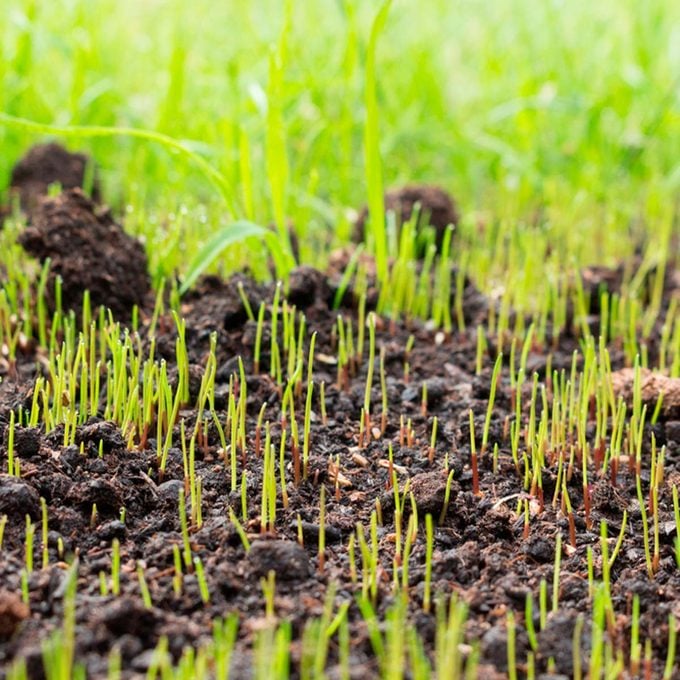There’s no one-size-fits-all approach when it comes to planting grass seed. There are different rules to follow whether you’re seeding for the first time or reseeding problem areas of your lawn.
How Long Does it Take for Grass Seed to Grow?

There’s no one-size-fits-all approach when it comes to planting grass seed. There are different rules to follow whether you’re seeding for the first time or reseeding problem areas of your lawn.
So how long does it take for grass seed to grow? Well, that depends on where you live and the type of grass you’re trying to grow. It also depends on some factors out of your control, such as sunlight, ground temperature and moisture.
Learn how to buy the best grass seed for your lawn.
From Seed to Plant
In general, it takes between seven and 30 days for a plant to grow from a seed, according to Lawn Love, a lawn service company with locations throughout the U.S. For example, if you’re trying to plant fescue grass, expect a germination period of seven to 14 days. However, it may take Kentucky bluegrass 14 to 30 days to germinate.
“It’s important to note that not all the seeds will sprout at the exact same time. But, if you’ve been waiting a sufficient amount of time and the area you seeded isn’t showing signs of life, then you may have to take a look at the factors that may have caused germination to fail before you try again,” according to the Lawn Love website.
Addressing Problems
Two main reasons grass seed isn’t growing is cool and wet weather, according to Jonathan Green, a leading supplier of grass seed. “Grass seed that is planted in soil temperatures below 50 degrees just will not grow potentially for many weeks if it does not want to,” according to the website. “Usually for the soil temperature to reach 50 degrees you need seven to 10 days of air temperatures to reach 60 plus degrees.” (All temperatures are in Fahrenheit.)
As a result, the company suggests August is a better time to plant grass seed than spring.
This is the best way to revive a thinning lawn.
In addition, excessive spring rains can delay germination, as over-watering does not make grass seeds grow any faster.
A rule of thumb: Be patient when it comes to planting grass seeds in the spring.
Can’t decide between sod and seed? Here’s why seed is the way to go in some areas of your lawn.




















